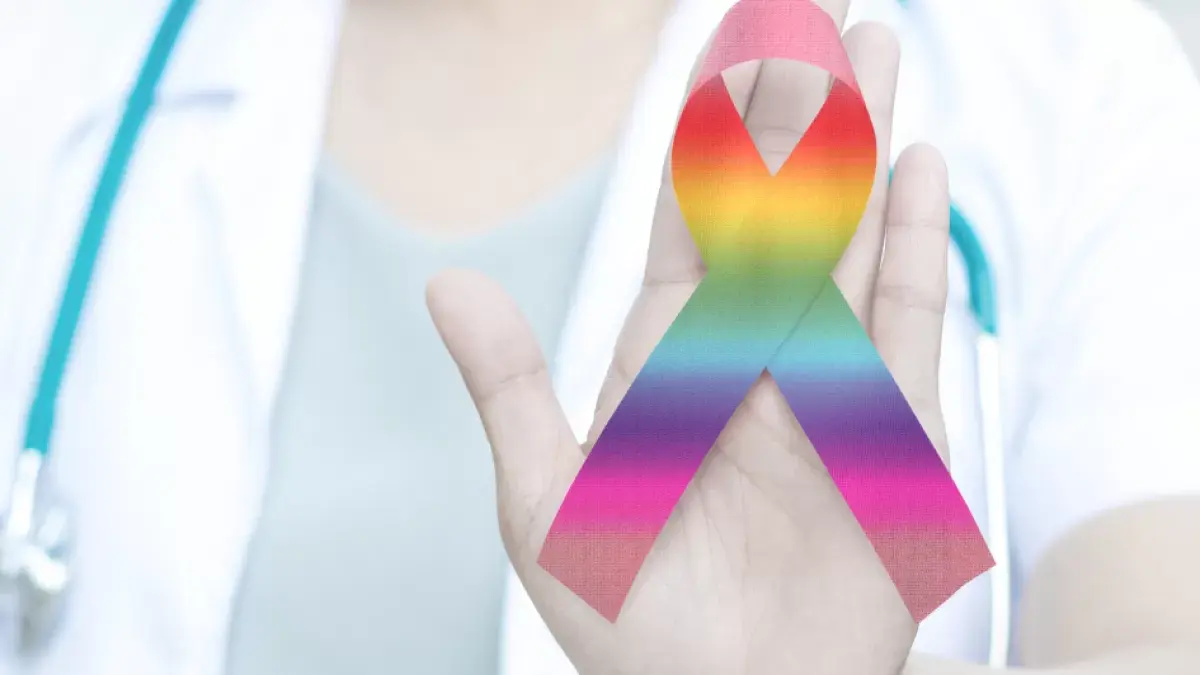This Pride Month, Dr Harry Brown, a Melbourne-based GP working between a private suburban clinic and a sexual health clinic, shares his views and advice on providing and supporting inclusive LGBTIQA+ healthcare.
Read on to learn more about the importance of education, awareness, and supportive resources in improving patient care and experiences.
How do you think healthcare professionals can contribute to creating an inclusive environment for LGBTIQA+ patients?
On a systems level, an inclusive environment starts from the moment the patient walks in the door or interacts with an online platform. Posters, stickers, and signs should be displayed both in clinic and online outlining that the practice is LGBTIQA+ friendly and inclusive. They can be purchased easily online. For example, I have displayed in my family practice ‘LGBTIQA+ People Are Welcome Here’ stickers from Transgender Victoria. I also have multiple fliers that appeal to the broader LGBTIQA+ community in the waiting room. Flags such as the pride and transgender flags may be displayed alongside the Aboriginal and Torres Strait Islander flags.
What steps have you taken in your practice to ensure that LGBTIQA+ individuals feel safe and respected?
Doctors can make their own practice more inclusive by upskilling in managing common presentations like PrEP for HIV prevention, patients wanting to access fertility (such as rainbow families), gender-affirming care, and care for sex workers. It is equally important to have an awareness of some possible barriers to healthcare access for such patients. This includes having go-to specialists who are inclusive and can provide affirming care, which is especially important among the trans and gender-diverse community, as well as providing lists that can be accessed through TransHub or Equinox websites. These are websites with an abundance of resources that can provide education for both doctors and patients.
What initiatives/resources do you utilise to educate yourself and your staff about LGBTIQA+ healthcare concerns?
LGBTIQA+ friendly referrals, including psychologists and psychiatrists, are really important. There are also dedicated services including Q Psychology which is a purpose-run psychology organisation based in Melbourne, providing mental health support for the LGBTIQA+ community with an awareness of the often-unique needs of these populations.
How do you think healthcare providers can contribute to LGBTIQA+ healthcare equality?
Healthcare providers should aim to remain inquisitive, open-minded, and non-judgmental regarding gender expression and diversity. An awareness of language such as pronouns and preferred names is invaluable for a cohort of patients who are already marginalised. This can be the difference between such patients feeling comfortable accessing care or simply going without. An awareness regarding screening guidelines for transgender patients is useful in creating equitable care to the broader population. The recent self-collected CST has increased uptake in transgender and gender diverse (TGD) patients with a cervix who may have been reluctant to this previously due to intense dysphoria. Education of clinic staff at all levels regarding the use of inclusive language and holistic patient-focused care is important.
By implementing these initiatives, healthcare professionals can contribute to creating an inclusive environment for LGBTIQA+ patients. Together, these efforts empower LGBTIQA+ individuals to access care comfortably and receive holistic, patient-focused treatment.
To learn more about the training and support of LGBTIQA+ patients in your clinic and stay up to date about current research and resources, visit https://rainbowhealthaustralia.org.au/.
For a state-based list of organisations and clinics focusing on LGBTIQA+ healthcare, visit https://au.reachout.com/articles/lgbtqi-support-services.
-
 Sep 27
Sep 27Changes to the RACGP PEP Specialist Comparability Assessment Process
From 22 November 2023, the process for overseas medical practitioners seeking to work in Australia becomes more accessible and efficient.
- News
- Medical Careers
- Admin
- 5 min read
-
 Sep 9
Sep 9Incentivising staff and independent practitioners
Learn how medical practices can boost growth and retain top talent with strategic non-equity and equity-based incentives, shared by experts at Avant Law.
- Medical Careers
- General Practice
- Guest
- 5 min read
-
 Aug 11
Aug 11The Hidden Job Market – How Doctors can tap in and reap the rewards
Working with a recruiter can help doctors further their career and find specialist medical jobs that fit their career goals and lifestyle aspirations.
- Medical Careers
- Wavelength
- 4 min read




